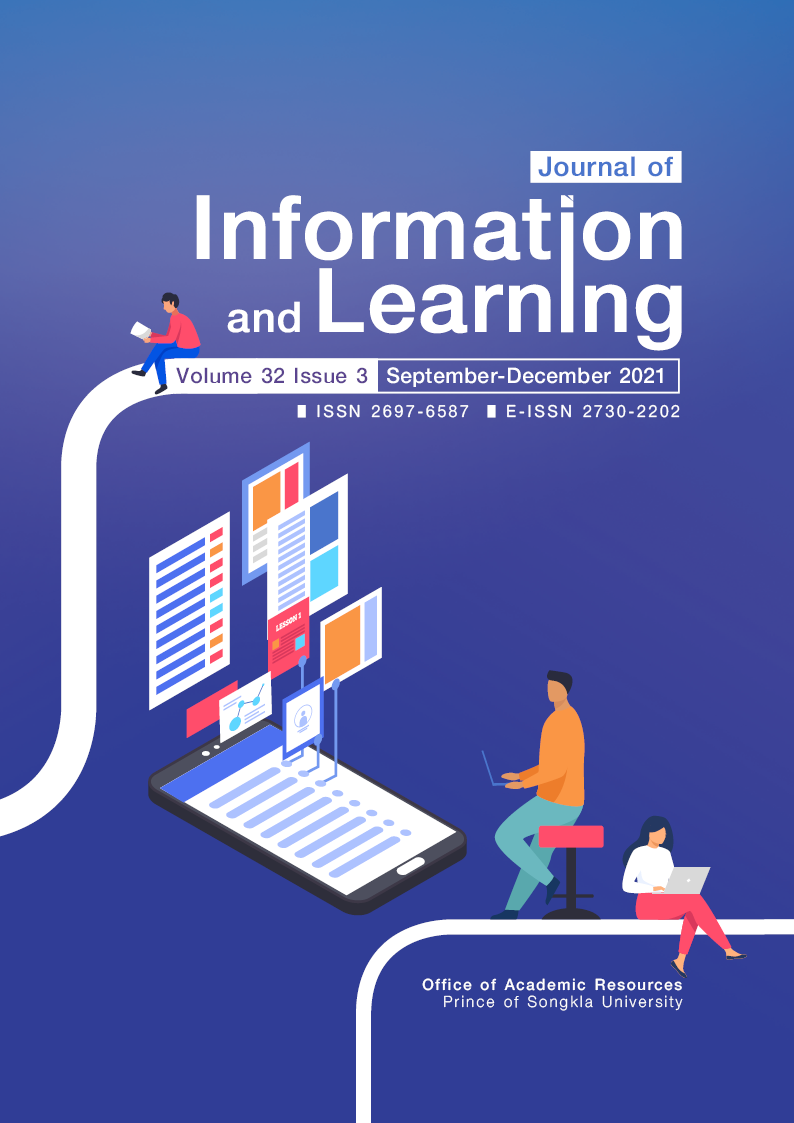Development of Innovative Leadership for School Administrators in Thailand 4.0 Era
Main Article Content
Abstract
School administrators in the Thailand 4.0 era are those who have been appointed to lead educational organizations, to secure, prosper and sustain as well as be able to cope with rapidly changing opportunities and threats. For people who will be leaders or administrators of schools, it is absolutely necessary to have skills, a vision to support or bring change, and creativity to build teamwork for providing opportunities to all sectors in order to share ideas, work together, appreciate their work, and to create an atmosphere of an innovative organization.
Innovative leadership can manage the educational management system of schools. This will encourage all the staff to have their ideas, understanding and behavior to reflect on the innovative leadership. These will then lead to innovation to achieve the goal of creating value-added changes to educational institutions. The innovative leadership can use concepts, methods and technologies continuously to make academic institutes develop with quality.
Therefore, for school administrators, it is necessary to have five skills, six leadership qualities, and four practice guidelines. The five skills are: associational thinking, observation of work, questioning for possibilities, networking with other people from different backgrounds, and experimentation for testing new ideas. The six qualities to demonstrate leadership are: developing right group norms, showing a team building strategy, showing interactions with people outside the team, showing support for leadership, showing school support, and showing effective management.
Article Details

This work is licensed under a Creative Commons Attribution-NonCommercial-NoDerivatives 4.0 International License.
The Journal of Information and Learning is operated by the Office of Academic Resources, Prince of Songkla University. All articles published in the journal are protected by Thailand copyright law. This copyright covers the exclusive rights to share, reproduce and distribute the article, including in electronic forms, reprints, translations, photographic reproductions, or similar. Authors own copyrights in the works they have created as well as the Office of Academic Resources. The Journal reserves the right to edit the language of papers accepted for publication for clarity and correctness, as well as to make formal changes to ensure compliance with the journal's guidelines. All authors must take public responsibility for the content of their paper.
References
Bakker, M., Leenders, R. T. A., Gabbay, S. M., Kratzer, J., & Van Engelen, J. M. (2006). Is trust really social capital? Knowledge sharing in product development projects. The Learning Organization, 13(6), 594-605.
Bommer, W. H., Miles, E. W., & Grover, S. L. (2003). Does one good turn deserve another? Coworker influences on employee citizenship. Journal of Organizational Behavior, 24(2), 181-196.
Chen, A. S. Y., & Hou, Y. H. (2016). The effects of ethical leadership, voice behavior, and climates for innovation on creativity: A moderated mediation examination. The Leadership Quarterly, 27(1), 1-13.
Collett, C., Graham, J., & Lindsay, J. (2019). Innovative leaders & leading innovation a theoretical & practical analysis. iOpener Institute for People & Performance. Oxford: United Kingdom.
Dhammasuddho, P. A. (2016). Innovation leadership roles for the Sangha Administration Ministry in the next decade. Journal of MCU Peace Studies, 4(2), 313-325.
Dyer, J., Gregersen, H., & Christensen, C. (2011). The innovator's DNA: Mastering the five skills of disruptive innovators. Boston, Mass: Harvard Business Press.
Kremer, H., Villamor, L., & Aguinis, H., (2019). Innovation leadership: Best-practice recommendations for promoting employee creativity, voice, and knowledge sharing. Business Horizons, 62(1), 65-74.
Morrison, E. W. (2011). Employee voice behavior: Integration and directions for future research. Academy of Management Annuals, 5(1), 373-412.
Mrazek, N. (2016). Ethical leadership development of school administrators under the office of basic education commission (Doctor dissertation). Burapha University, Chonburi.
Nanthasri, T., Pengsawat, W., Chalakbang, W, & Satheannopakaow, P. (2019). The development of indicators on innovative leadership of school directors under Offices of Primary Education Service Areas in the Northeast of Thailand. Social Sciences Research and Academic Journal, 14(3), 93-106.
Perry-Smith, J. E. (2006). Social yet creative: The role of social relationships in facilitating individual creativity. Academy of Management Journal, 49(1), 85-101.
Phrakhrusunthonwatcharakit. & Phetchawong, A. (2019). The Buddha’s concept of leadership & Thailand 4.0. Humanities, Social Sciences and Arts, 12(4), 967-982.
Poovorawan, Y. (2020). Educational impact. Retrieved from learning covid://learningcovid.ku.ac.th/course/?c=7&l=4
Praphanphat, J. (2017). A study of innovative leadership of school administrators in the opinions of the teachers under the supervision of Pathum Thani primary educational service area office (Master’s thesis). Rajamangala University of Technology Thanyaburi, Pathum Thani.
Prasertsin, U., Jiotrakul, T., & Thongklomsee, J. (2020). A studying guideline of the educational innovation management used for improving teacher’s teaching and research. The Journal of Library and Information Science Srinakharinwirot University, 10(2), 79-89.
Promsri, C. (2018). Leadership for executives: concepts, theories and cases. Bangkok: Samnak Phim Panyachon.
Robbins, S. P., & Coulter, M. (2016). Management (13th ed.). Pearson: Global Edition.
Rodrakam, S. (2018, November). The role of school administrators in Thailand 4.0. Graduate School Conference 2018 (pp. 575-579). Bangkok: Suan Sunandha Rajabhat University.
Saisirisuk, P. (2018). Innovative leadership of School Administrators of Panchaphaki School Cluster under the Secondary Educational Service Area Office 4 (Master’s thesis). Kasetsart University, Bangkok.
Thansettakij. (2019). Arai Khư̄ "singčhampen" khō̜ng "phūnāmchœ̄ngna watkam". Retrieved from https://www.thansettakij.com/content/strategy/398228
Thipkanchanarat, R., & Donprasit, T. (2020). Characteristics of school administrators in Era 4.0 that affect performance Academic Administration of School Administrators in Schools under the Office Nonthaburi Primary Education Area 1. The Journal of Department Administration Research, 10(3), 118-126.


